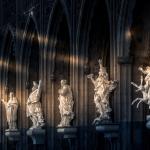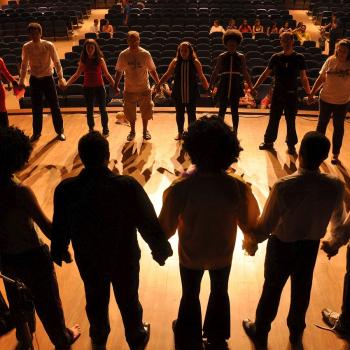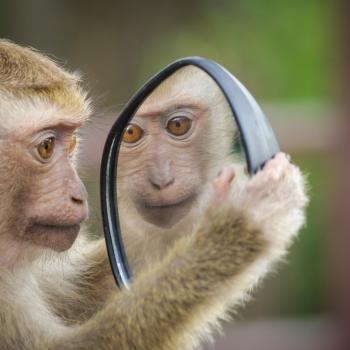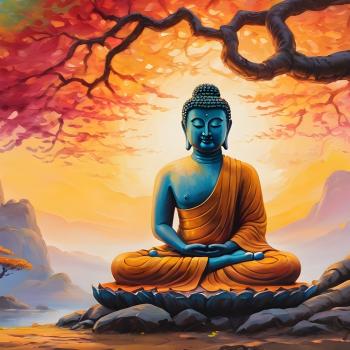Comedian Ricky Gervais once tweeted, “There have been nearly 3000 Gods so far, but only yours actually exists. The others are silly made-up nonsense. But not yours. Yours is real.” For many of us who were taught to believe exactly that, his statement is unsettling.
Merriam-Webster defines “God” as “the supreme or Ultimate Reality.” Recently, I wrote about Ultimate Reality here and here and here and here. I do not assume that Ultimate Reality is personal or supernatural. Perhaps, it is. We can speculate, but nobody knows.
In ancient times, when primitive belief systems were being developed, many people practiced henotheism, the worship of one god among many, as described in the Bible.
Later, monotheistic religions insisted that there was only one God. Here, Ricky Gervais might ask, “Yes, but which god is the one God, and how do we know that?”
If we answer, “My scripture or my tradition tells me so,” then we only beg another question, “Which is the one Scripture or the one Tradition, and how do we know that?”
Universal: God Above Gods
Different religions (like different languages) attempt to explain the same universal Ultimate Reality by imagining different particular gods, typically in ways that reflect their cultures and worldviews.
Christian mystics, such as Meister Eckhart, and Christian theologians, such as Paul Tillich, attempt to reconcile these two concepts – God as universal and God as particular.
They distinguish between the “Godhead” or the “God above gods,” which is universal, and Allah or Jesus or Shiva or Thor or Yahweh or Zeus, which are particular.
All religion is cultural, and all theology is speculation. With respect to Ultimate Reality, do we honor Ultimate Reality wherever we find it, even in other traditions? Or, do we insist that our god, formed by our culture and worldview, is the one God?
Particular: The Father and The Mother
Recently, in the same week, I prayed to the Father in a Catholic Mass, and I chanted to the Divine Mother in a Hindu fire ceremony. Both ceremonies took place in Crestone, Colorado.
I do not believe in a personal God, either a Father god or a Mother god, but I do believe that we can honor universal Ultimate Reality through honoring particular gods, such as these.
In Crestone, you will meet people who follow multiple spiritual paths, so (for example) one person might support the Carmelite hermitage, the Hindu ashram, and the Sufi circle, simultaneously.
To them, there is no contradiction in following several paths, as there is no contradiction in speaking several languages. In fact, those who follow several paths often discover unique insights.
In Texas, many people think that Texas is the best place to live. Where else have you lived, we might ask. “Just Texas!!” they exclaim proudly. Well, I have lived in several places, and Texas is the best place for some things and the worst place for others. Like a language or a religion.
The ashram honors Shiva, the God of destruction. Devotees chant “Om Namah Shivaya,” which either translates as “Adoration to Lord Shiva” or “I bow to the inner self.” The first is particular to Shiva, and the second is universal to an Ultimate Reality that is immanent in all of us.
At the fire ceremony, some participants chanted to the particular person of Shiva, and others (like me) chanted to universal Ultimate Reality through the particular person of Shiva.
You might be wondering if different Hindus can have different beliefs. Of course. Hinduism is not creedal, and Hindus profess many beliefs. Anyway, does everyone in your religion agree? Does everyone in your church agree? Of course not.
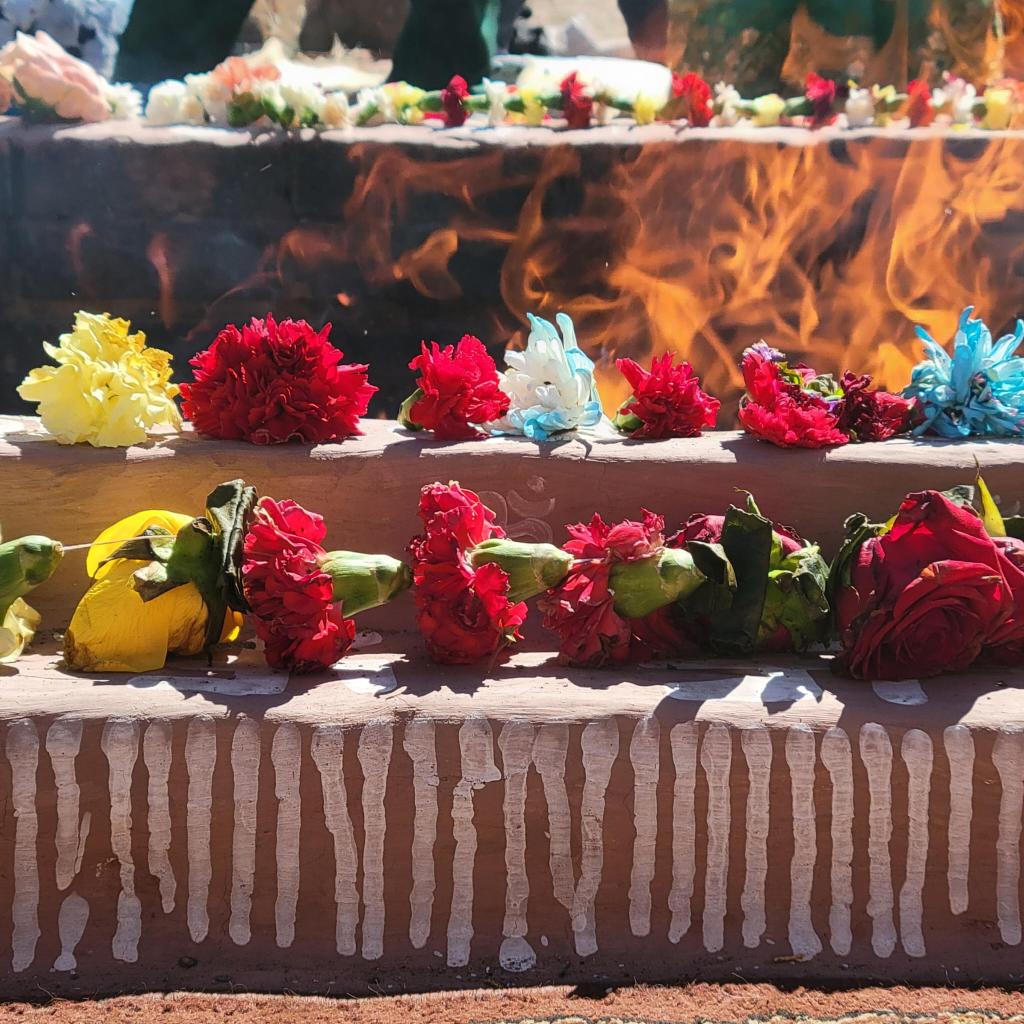
A Hindu Fire Ceremony
The fire ceremony is an ancient religious ceremony, which some Hindus still practice today. This ceremony, conducted on a snowy day at the base of the Sangre de Cristo Mountains, was powerful.
Everyone was invited, including Hindus and non-Hindus alike, and everyone was welcome to honor Ultimate Reality in their own way, through their own particular gods.
Outdoors, participants were pelted with snow and warmed by the fire, as they gave thanks for the elements of the natural world and recognized the many manifestations of the divine feminine.
Indoors, participants chanted and danced. Sitting on the floor with my eyes closed, I felt the breeze from the saris, as the dancers whirled around me, and I felt the songs rumble in my chest, as we repeated the familiar chants together.
Ater attending Evensong at Westminster Abbey and Pentecostal services in Africa, as well as baking in a sweat lodge, meditating in a zendo, and whirling with the dervishes, I found the fire ceremony as meaningful and moving as any ceremony that I ever encountered.
All are Welcome
The Vedic tradition, commonly called Hinduism, has a broad vocabulary and a rich history. Also, Hinduism is generally not doctrinal or evangelistic or exclusive.
Consider that some Hindus honor avatars or incarnations of gods, such as Ram and Krishna. They honor Buddha, Jesus, and other non-Hindu religious figures in the same way.
On the grounds of the ashram, you will find statues of various Hindu deities, as well as statues of Buddha, Mary, and St. Francis and other non-Hindu religious figures.
In the ashram gift shop, you will find the teachings of the Haidakhan Babaji, who sometimes referred to the teachings of Jesus and other non-Hindu religious figures.
Do we honor Ultimate Reality wherever we find it, even in other traditions?
If you want to stay up to date on the latest from You Might Be Right, simply subscribe with your email.



